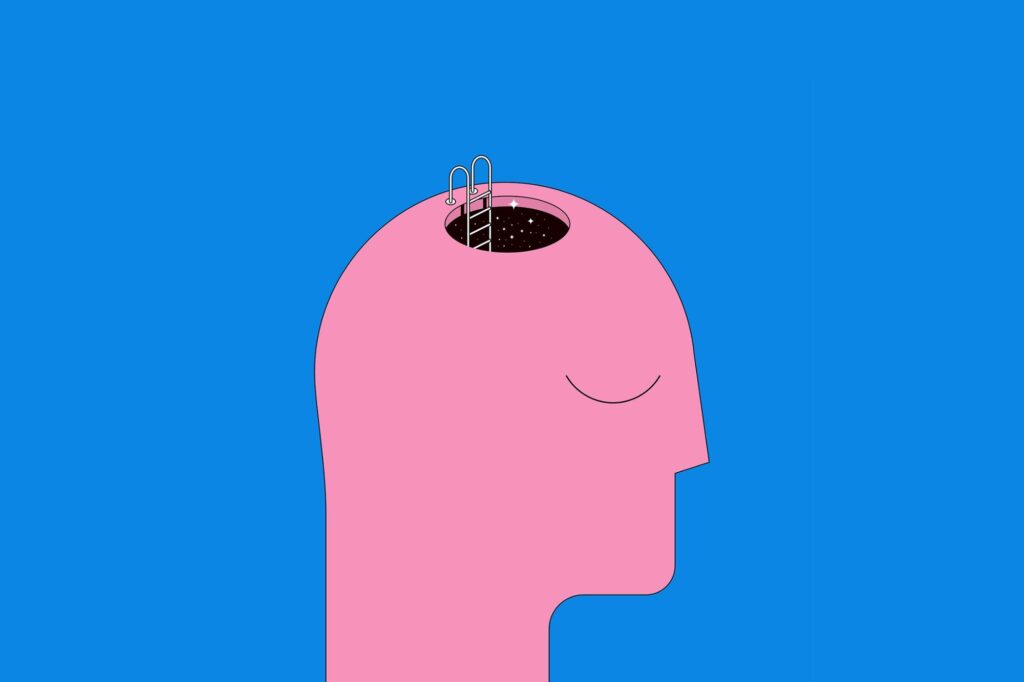
In today’s unpredictable world, many of us have faced deep turmoil and emotional upheaval that shake our very foundations. When life feels overwhelmingly out of control, the challenge of rebuilding becomes both essential and transformative. In this article, we delve into psychology’s transformative strategies designed to help you navigate distress and emerge stronger. By understanding the mental resilience that lies beneath our reactions, you will learn how self-awareness, mindfulness, and evidence-based practices can help you reclaim your life. If you have ever felt lost amid chaos, this guide provides a fresh perspective and practical tips for embarking on your journey of reconstruction.
Understanding the Psychology Behind Recovery
The journey to recovery begins by exploring the psychological mechanisms triggered by chaos. When severe disruption shakes our lives, our cognitive processes and emotional stability are deeply affected. In these moments, the brain often defaults to survival instincts that may obstruct clear thinking. Recognizing these patterns is the first step toward healing, as it enables you to understand the impact of stress hormones on your emotional responses and start paving your road to recovery.
Studies in psychology reveal that acknowledging vulnerability paves the way for meaningful change. By facing the reality of how chaos affects our mental state, we can dismantle the internal barriers that hinder progress. Recent research on neuroplasticity demonstrates that the brain can rewire itself following significant stress, offering hope that our minds, far from being rigid, can adapt and find structure amid disorder.
Moreover, the power of storytelling emerges as a significant catalyst for recovery. Whether through writing, therapy, or heartfelt conversation, sharing your experiences not only provides emotional relief but also helps reconstruct your personal narrative. Recounting and reshaping your story transforms past challenges into valuable lessons, making the path to healing one of profound self-discovery.
The Role of Self-Awareness and Mindfulness

Self-awareness and mindfulness form the pillars of recovery after chaos. By becoming consciously present, you illuminate the hidden paths beneath layers of past trauma. Observing your thoughts and emotions without judgment creates the space necessary for healing. This practice goes beyond mere relaxation—it equips your mind to manage stress and uncertainty, a crucial asset when starting over.
Cognitive psychology research underlines the important role of mindfulness in reducing anxiety and depression. Techniques such as deep-breathing exercises, meditation, and guided imagery ground you in the present while embracing the learning from your past. Transforming negative thought patterns into opportunities for growth, mindfulness helps reframe setbacks as unique chances for self-improvement.
Cultivating self-awareness impacts every aspect of your emotional health. Observing your inner dialogue enables you to detect and discard destructive habits. Accepting emotions as they appear gradually dissolves the grip of fear-based reactions. This steady transformation nurtures resilience, turning chaos into a catalyst for personal reinvention, and allowing your innermost strengths to emerge.
Practical Strategies for Rebuilding After Chaos
Moving forward after chaos requires actionable strategies anchored in strong psychological principles. One of the first steps is establishing a consistent routine that brings structure to daily life. Whether it involves fixed waking hours or designated times for self-care activities like exercise or reading, a routine offers a grounding force in turbulent times. This structure is not about rigidity but setting a framework that makes your mind feel secure and grounded.

Another key strategy is setting realistic, manageable goals. These goals act as milestones on your path to recovery, marking tangible progress amid uncertainty. Recognizing and celebrating every small victory enhances confidence and reinforces positive behaviors. Additionally, seeking support from friends or professionals ensures that your journey towards healing is enriched by shared empathy and guidance.
Creative outlets also serve as powerful tools for rebuilding. Engaging in artistic activities, music, or physical expressions like dance allows for the expression of emotions that words may fail to capture. These creative practices bridge your internal emotional world with external expression, transforming experiences of sorrow into sources of inspiration. By integrating these strategies, you not only create a clearer roadmap for recovery but also convert obstacles into stepping stones for personal growth.
Embracing Change: Redefining Your Identity
After enduring the turbulence of chaos, one of the most empowering aspects of recovery is the chance to redefine yourself. This process involves re-examining your personal values, relationships, and long-held beliefs. Rather than merely ‘starting over,’ it is about unveiling a more authentic version of yourself enriched with lessons learned from adversity. As you rebuild, you are invited to shed outdated layers and embrace a future defined by resilience and clarity.
At the heart of transformation is self-reinvention, where every challenge contributes to the foundation of a renewed existence. Cultivating gratitude and self-compassion helps you greet each day with renewed purpose, paving the way for healthier relationships and stronger boundaries. Embracing change means not only accepting the new but joyfully integrating the wisdom of lessons past into a vibrant tapestry of self-fulfillment.

Many find that redefining identity involves rethinking life goals, exploring new career paths, or rediscovering lost passions. Life after chaos is filled with opportunities for reinvention, allowing you to craft a narrative that is uniquely yours. Engaging with varied perspectives and seeking guidance from mentors enriches this process of transformation. Ultimately, this journey leads you to celebrate your scars as symbols of survival and growth, charting a path toward a richer, more purposeful future.
Content Additional
For those seeking even deeper insights into the psychological journey of starting over, it is important to recognize that recovery is a multifaceted process that encompasses both emotional and cognitive renewal. Drawing on modern psychology and emerging research trends from 2023, therapists now employ integrative techniques that combine cognitive-behavioral therapy with mindfulness practices. These hybrid methods have proven particularly effective in bridging the gap between your past self and the aspirations of your new identity.
Moreover, technology has revolutionized the recovery process. Digital platforms, mobile applications, and online support groups allow you to access mental health resources anytime and anywhere. These innovations facilitate exercise routines, meditation sessions, and even virtual therapy, making recovery more accessible—especially for those in remote areas or facing current global challenges. The fusion of technology with traditional therapeutic approaches is reshaping the way we understand and overcome trauma, reinforcing the vital connection between mind, body, and digital innovation.
Finally, continuous education in the field of psychology remains essential. Workshops, online courses, and community seminars empower individuals by providing up-to-date knowledge about mental health intricacies. Engaging in ongoing learning not only broadens your perspective but also equips you with the tools needed for effective self-management. In a world filled with challenges, staying informed about psychological advancements ensures that you are prepared to face future hurdles with confidence and calm.

Recovering after chaos is a challenging yet transformative journey. Embracing self-awareness, practicing mindfulness, and applying strategic, practical steps will not only allow you to recover but also empower you to reinvent yourself with newfound strength and purpose. Remember that every setback is an opportunity to learn and evolve. The art of starting over lies in recognizing your inner resilience and trusting that a brighter, more fulfilling future awaits. Let these psychological insights serve as your roadmap to personal empowerment, reinforcing the idea that every ending is simply the beginning of an exciting new chapter.




